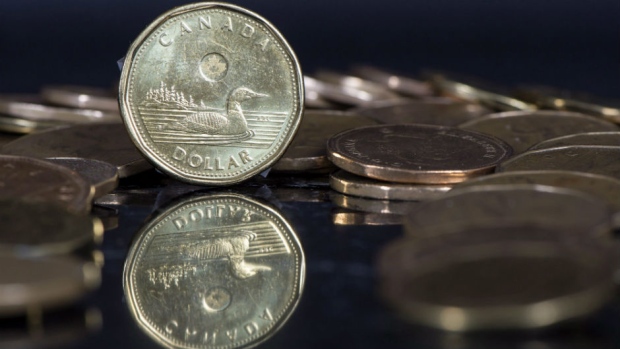Nov 13, 2017
Loonie pares gains ahead of NAFTA talks
, Reuters

The Canadian dollar pared some recent gains against its U.S. counterpart on Monday, as investors turned attention to the resumption of NAFTA renegotiations and data showed that speculators had cut bullish bets on the currency.
As of Nov. 7, Canadian dollar net long positions had slipped to 50,889 contracts from 57,839 a week earlier, data from the U.S. Commodity Futures Trading Commission and Reuters calculations showed. In October, bullish bets had reached 76,392 contracts, the highest in five years.
The fifth round of North American Free Trade Agreement renegotiations is due to be held between Nov. 17 and 21 in Mexico City.
"NAFTA concerns are starting to become more relevant for currency investors and traders," said Scott Smith, managing partner at Viewpoint Investment Partners. "We will likely see ... somewhat of a negative bias to the Canadian dollar until there is more certainty around the NAFTA negotiations."
Canada sends about 75 per cent of its exports to the United States and its economy could be hurt badly if NAFTA collapses.
The Bank of Canada worried about trade uncertainties as it left its benchmark interest rate unchanged at one per cent in October, after hiking in July and September for the first time in seven years.
Canada's October inflation report, due on Friday, could reinforce the central bank's more "cautious tone," Smith said. Economists expect the annual inflation rate to have cooled to 1.4 per cent from 1.6 per cent in September.
At 4 p.m. ET, the Canadian dollar was trading at $1.2730 to the greenback, or 78.55 cents US, down 0.3 per cent. The currency traded in a range of $1.2671 to $1.2741. On Friday, it touched its strongest level in more than two weeks at $1.2666.
Oil was supported by Middle East tensions and record long bets by fund managers. U.S. crude futures settled two cents US higher at US$56.76 a barrel.
But the Canadian dollar was unlikely to recapture its tight link with the price of oil even as the interest rate outlook settles, given that crude trades far removed from levels needed to affect investment in Canada's energy sector, economists and strategists said.
Canada's bond market was closed on Monday to mark Remembrance Day.
